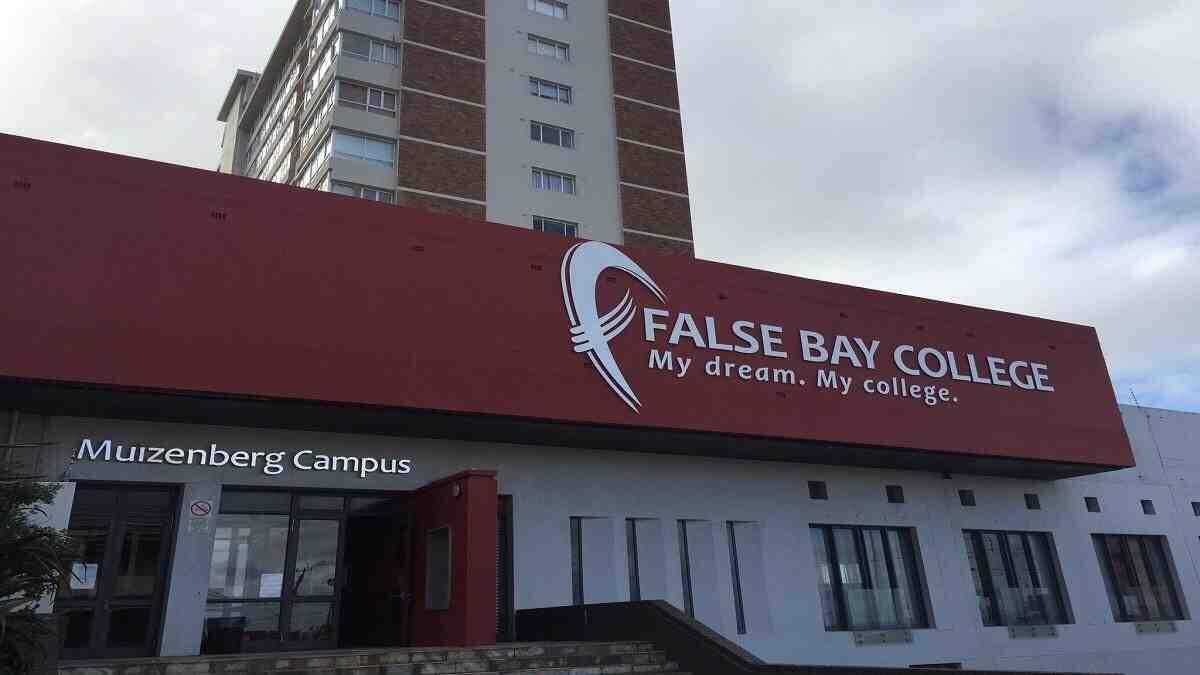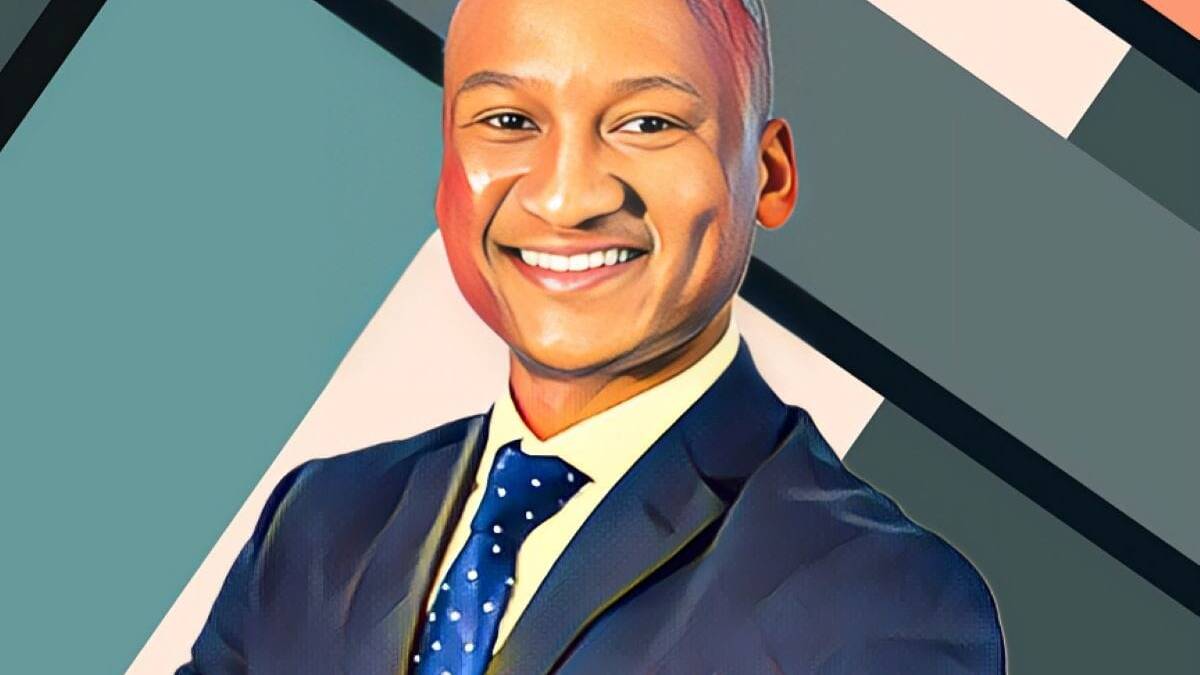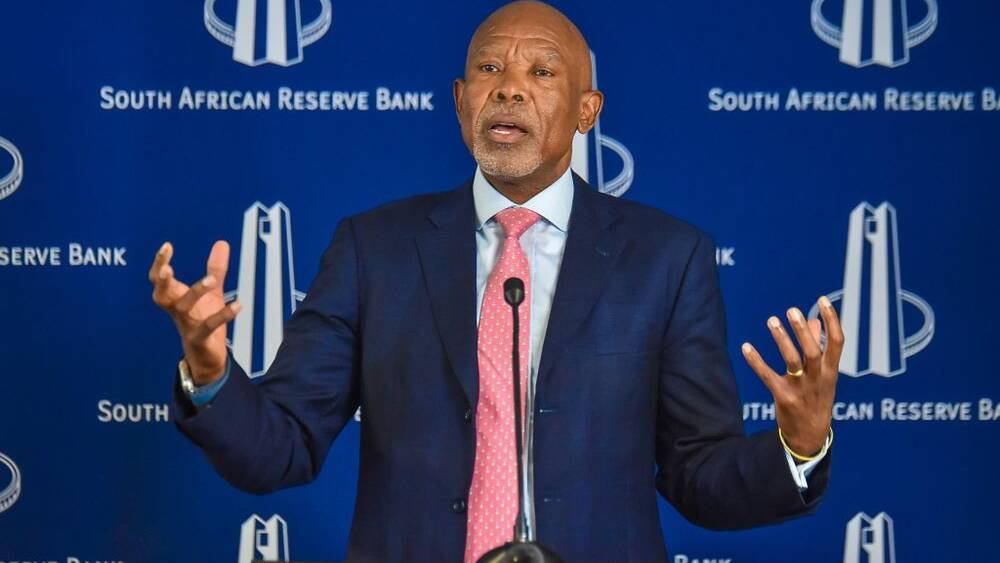Hunting down those who kill people to sell their body parts for 'magic charms'
BBC | 24.11.2025 07:50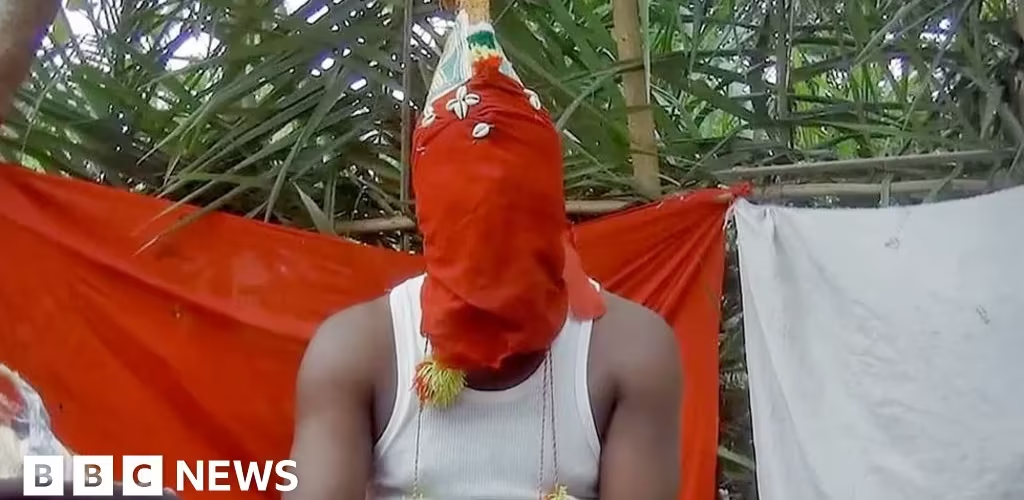
With many families left traumatised by killings apparently linked to supposed magic rituals in Sierra Leone, BBC Africa Eye looks into those behind the trade in human body parts.
Warning: This article contains details some readers may find disturbing.
The mother of an 11-year-old boy murdered as part of a suspected black magic killing four years ago is devastated that no-one has yet been brought to justice for his death.
"Today I'm in pain. They killed my child and now there is just silence," Sallay Kalokoh told BBC Africa Eye, explaining how her son Papayo was found with parts of his body removed, including his vital organs, eyes and one arm.
He had gone out to sell fish at the market and never came back.
His family searched for him for two weeks - and finally found his mutilated corpse at the bottom of a well.
"We always tell our children to be careful. If you are selling, don't go to a corner or take gifts from strangers. It happens frequently in this country," Ms Kalokoh said.
This murder in my hometown of Makeni, in central Sierra Leone, has haunted me as we often hear of reports of killings linked to black magic, also known as juju, that are never followed up or properly investigated by the authorities.
In Papayo's case, the police did not even confirm that it was a "ritual killing" - when a person is murdered so that parts of their body can be used in so-called magic rituals by illicit juju practitioners.
They promise things like prosperity and power to clients who pay large sums in the false belief that human body parts can make such charms more potent.
But with the authorities severely under-resourced - there is only one pathologist in a country that has a population of 8.9 million - it is often impossible to gather the evidence needed to track down the culprits.
Belief in witchcraft is also so deeply ingrained in Sierra Leone, even among many police officers, that there is often a fear of pursuing cases further - and most go unsolved.
But I wanted to find out more about this underground trade in human body parts that leaves tragedy in its wake.
Our BBC Africa Eye team was able to find two people who claimed they were juju practitioners and offered to obtain body parts for ritual purposes.
Both said they were part of much larger networks - and one boasted that he had powerful clients across West Africa. The BBC was unable to verify these claims.
One member of our team went undercover, using the name Osman, to pose as a politician who wanted to achieve power through human sacrifice.
We first travelled to a remote area of Kambia district, in the north of the country near the Guinean border, to meet the juju man in his secret shrine - an area in dense bush where he consulted with his clients.
Calling himself Kanu, he wore a ceremonial red mask covering his whole face to conceal his identity and boasted of his political connections.
"I was working with some big, big politicians in Guinea, Senegal and Nigeria. We have our team. Sometimes during election time, at night, this place is full of people," he claimed.
Election season is regarded by some as a particularly dangerous time when parents have been warned to take special care of their children because of the heightened risk of abductions.
On a second visit, Kanu became more confident and showed Osman what he said was evidence of his trade - a human skull.
"You see this? This belongs to someone. I dried it for them. It is a woman's skull. I am expecting the person to pick this up today or tomorrow."
He also pointed to a pit behind his shrine: "This is where we hang human parts. We slaughter here, and the blood goes down there… Even big chiefs, when they want power, come here. I give them what they want."
When Osman specified that he wanted limbs from a woman to be used in a ritual, Kanu got down to business: "The price of a woman is 70m leones [£2,500; $3,000]."
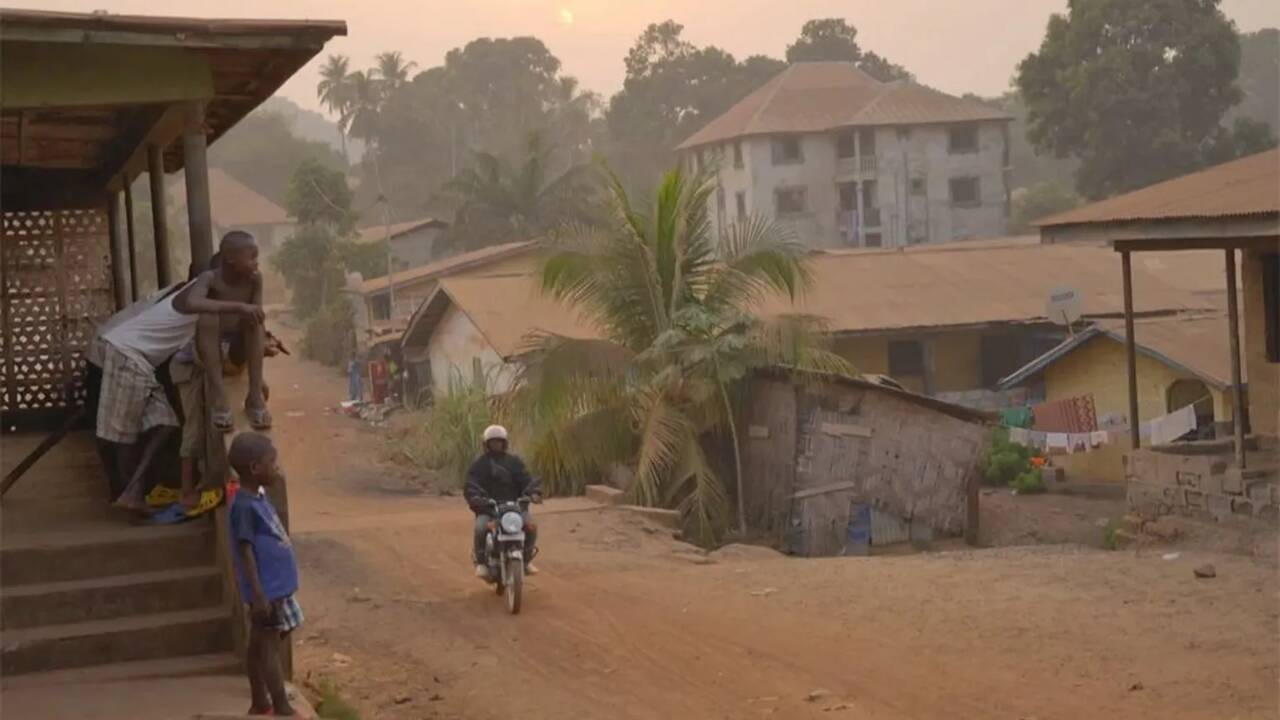
Anxious not to put anyone at risk, we did not meet Kanu again. He may have been a scammer, but we handed over our evidence to the local police to investigate further.
Such juju men sometimes refer to themselves as herbalists, the name given to healers who use traditional medicine often made from local plants to treat common illnesses.
World Health Organization data shows that Sierra Leone - which suffered a brutal civil war in the 1990s and was at the centre of the Ebola epidemic a decade ago - had around 1,000 registered doctors in 2022, compared to reported estimates of 45,000 traditional healers.
Most people in the West African nation rely on these healers, who also help with mental health issues and treat their patients in shrines where there is an element of mysticism and spiritualism culturally associated with their craft and the remedies they sell.
Sheku Tarawallie, president of Sierra Leone's Council of Traditional Healers, is adamant that "diabolic" juju men like Kanu are giving healers a bad name.
"We are trying very hard to clear our image. The ordinary person doesn't understand, so they class us [all] as bad herbalists. One rotting fish can destroy the batch of fish… We are healers, we are not killers," he told BBC Africa Eye.
Mr Tarawallie is in fact trying to work with the government and another non-governmental organisation to open a traditional medicine clinic to treat patients.
It was those with a lust for power and money who were often behind the ritual killings, he believed.
"When somebody wants to become a leader… they remove parts from human beings. They use that one as a sacrifice. Burn people, use their ashes for power. Use their oil for power."
Undercover filming of a man who said he was a juju practitioner and claimed to sell human body parts
The number of ritual killings in Sierra Leone, where most people identify as Muslim or Christian, is not known.
"In most African countries, ritual murders are not officially recorded as a separate or sub-category of homicide," Emmanuel Sarpong Owusu, a researcher at the UK's Aberystwyth University, told the BBC.
"Some are misclassified or misreported as accidents, deaths resulting from attacks by wild animals, suicides, natural deaths… Most perpetrators - possibly 90% - are not apprehended."
When we found another suspected supplier of body parts, he was located in a suburb of the capital, Freetown, called Waterloo, which is notorious for drug abuse and other crime.
"I'm not alone, I have up to 250 herbalists working under my banner," the man calling himself Idara told Osman, who was again undercover and wearing a secret camera.
"There are no human parts that we don't work with. Once we call for a specific body part, then they bring it. We share the work," Idara said.
He went on to explain how some of his collaborators were good at capturing people - and on Osman's second visit played a voice message from one of them who claimed they were prepared to start going out every night in search of a victim.
Osman told him not to proceed yet but when he later received a call from Idara claiming his team had identified a victim, we contacted Police Commissioner Ibrahim Sama.
He decided to organise a raid - but said his officers would not do so without the involvement of Mr Tarawallie, who often assists the police on such operations.
"When we got intelligence that there is a particular dangerous witchdoctor operating a shrine, we will work with the traditional healers," said an officer on the raid, Assistant Superintendent Aliu Jallo.
He went on to express the superstitions some officers have about tackling rogue herbalists: "I will not go and provoke situations. I know that they have their own powers that are beyond my knowledge."
After Idara was captured - discovered hiding in the roof clutching a knife - Mr Tarawallie began searching the property for evidence, saying there were human bones, human hair and piles of what looked like dirt from cemeteries.
This was enough for the police to arrest Idara and two other men, who were charged in June with practising sorcery as well as being in possession of traditional weapons used in ritual killings. They pleaded not guilty to the charges and have since been granted bail, pending further investigations.
As we never heard back from the police in Kambia about Kanu, I tried to call him myself to challenge him about the allegations directly, but he was unreachable.
There are occasions when even high-profile cases appear to stall. Two years ago, a university lecturer went missing in Freetown and his body was later found buried in what police say was the shrine of a herbalist in Waterloo.
The case was referred in August 2023 by a magistrate to the High Court for trial, but two sources have told the BBC it has not been pursued so far and those detained by police have been released on bail.
My family is facing similar hurdles finding justice. In May, during our BBC investigation, my 28-year-old cousin Fatmata Conteh was murdered in Makeni.
A hairdresser and mother of two, her body was dumped the day after her birthday by the side of the road where a resident told the BBC two other bodies had been found in recent weeks.
Several of her front teeth were missing, leading the community to believe it was a ritual killing.
"She was a lady that never did harm. She was very peaceful and hard-working," said one mourner as family, friends and colleagues gathered for a big funeral at her local mosque.
We may never know the true motive for Fatmata's murder. The family paid for her body to be transported to Freetown for an autopsy - something the authorities could not afford to do - but the post-mortem was inconclusive and no arrests have yet been made.
As is the case for Papayo's mother, the lack of closure and feeling of abandonment by the police fuels fear and terror in poor communities like Makeni.
Additional reporting by Chris Alcock and Luis Barrucho


